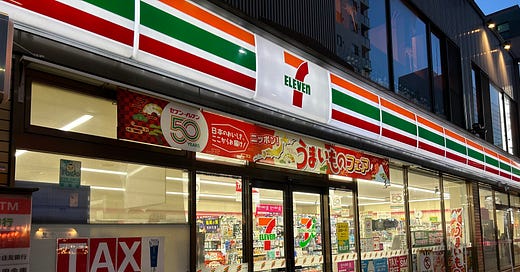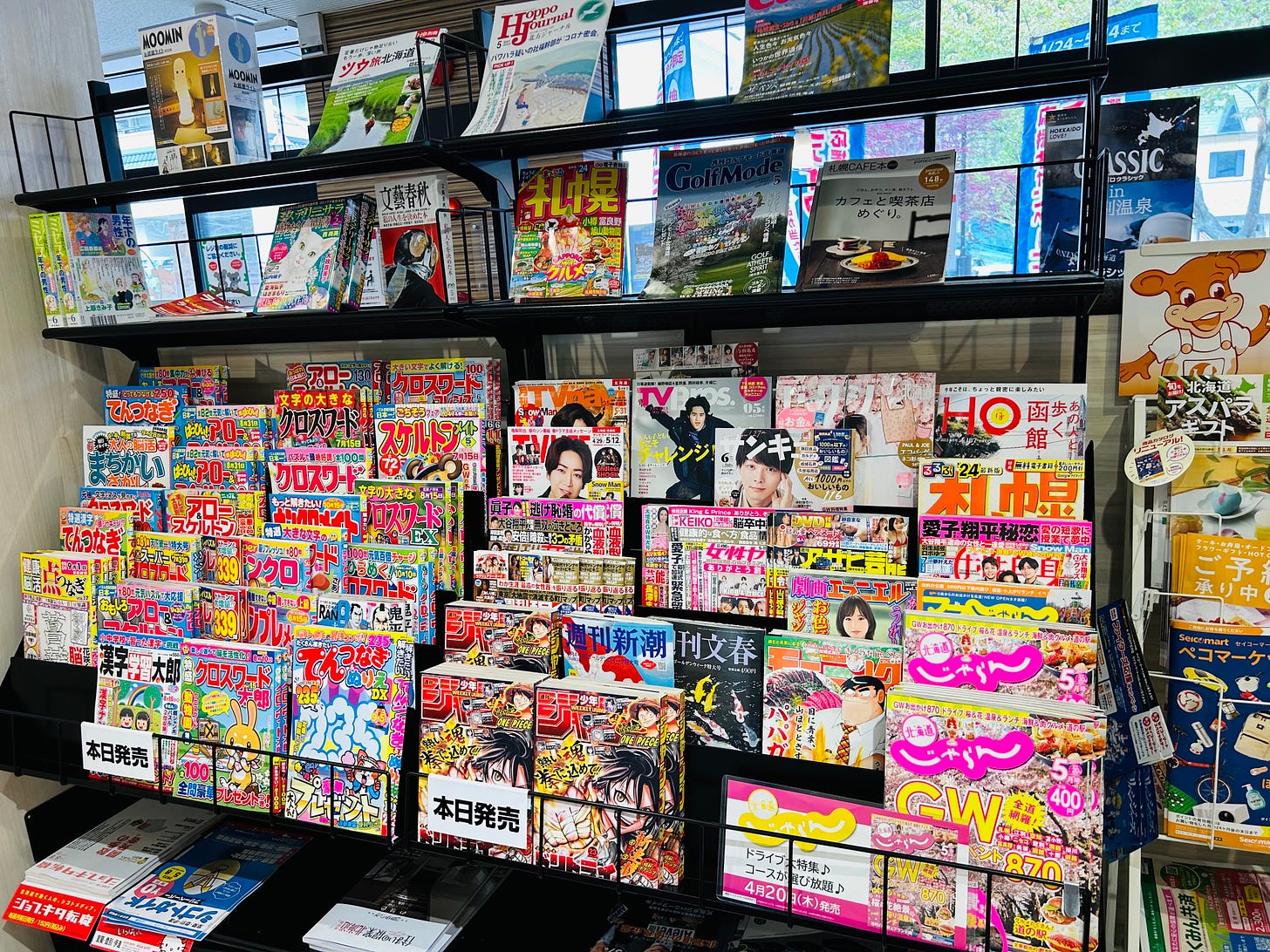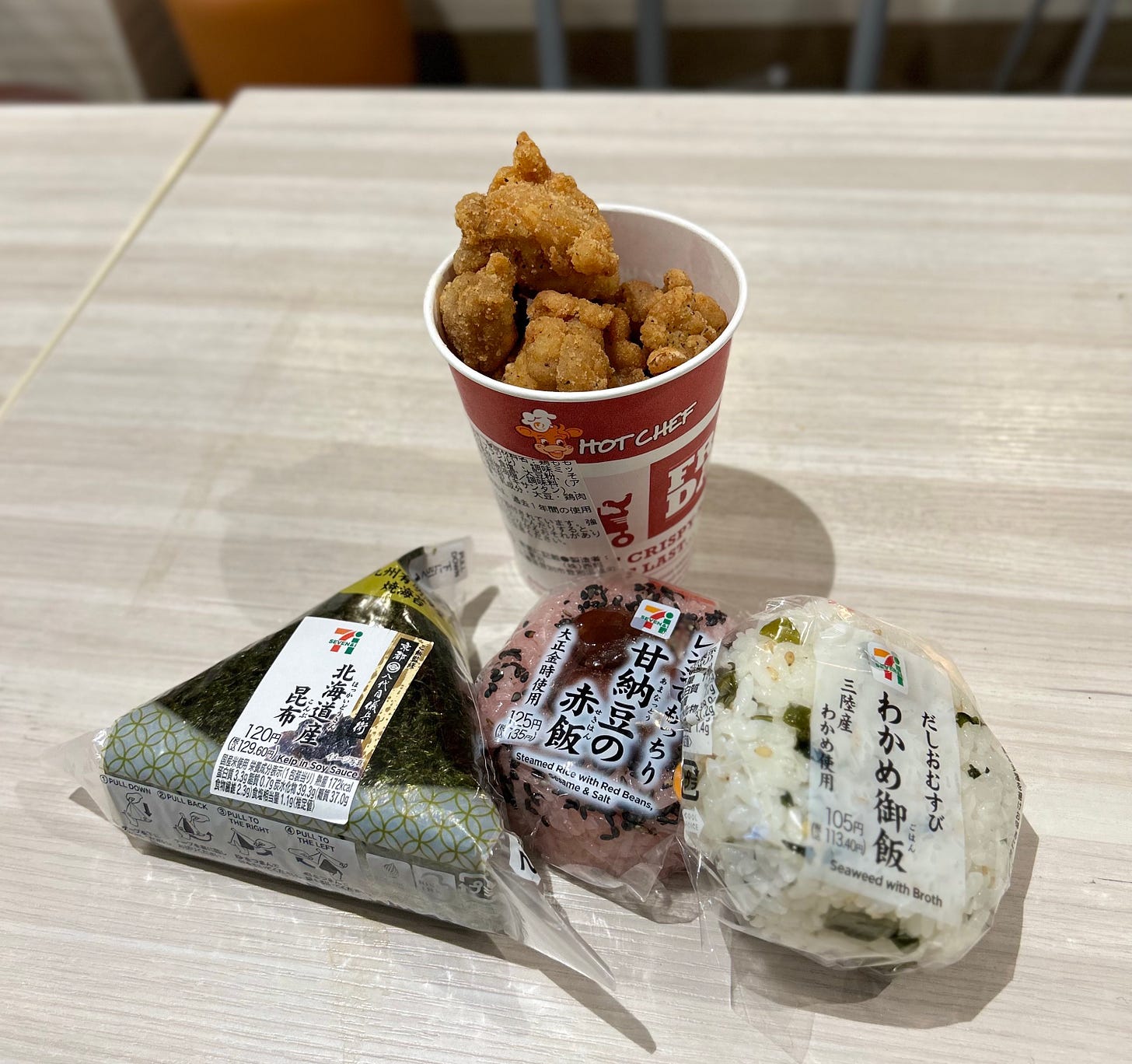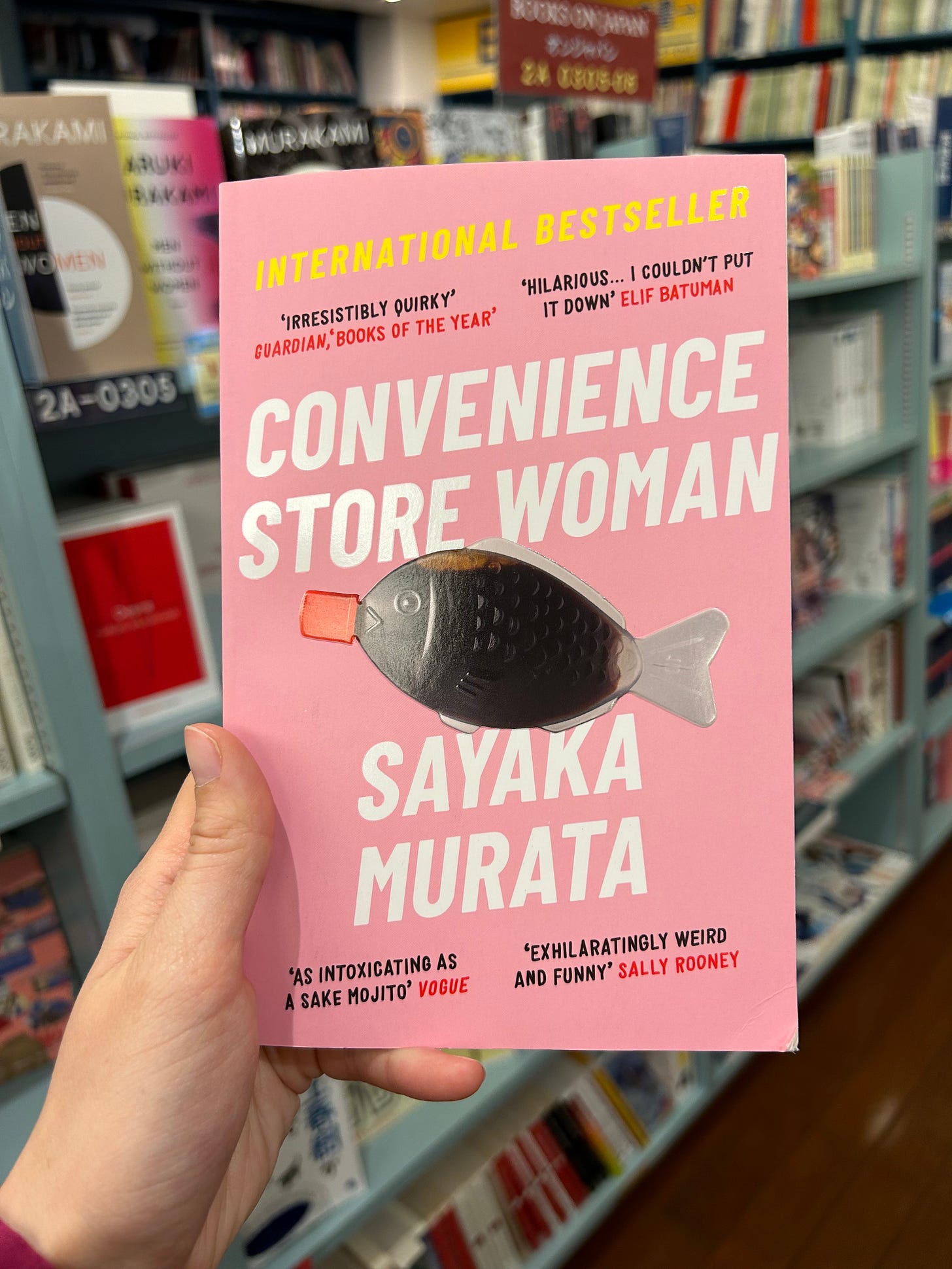A couple nights ago we landed in Sapporo, the biggest city in Japan’s northernmost province, Hokkaido. After dragging our luggages across several streets, getting lost, receiving help from a kind hotel concierge, and riding a taxi whose driver was just as confused as we were, we finally arrived at the alley where our rental apartment was waiting for us. Across the street was a glowing convenience store ready to satisfy our jet-lagged stomachs. Very convenient indeed.
There are many late-night options in Sapporo and other major cities in Japan, but none of them beat the efficiency and reliability of the convenience store (konbini in Japanese.) I rarely go to 7/11 in the United States but in Japan we found ourselves going daily to stores like 7/11 (which puts the American branches to shame), Lawson (which has a logo written in a Wild-West-Tavern font), and Seico Mart (the Hokkaido brand with a cow mascot that was in recent years crowned the best convenience store in the country.) I learned that these 24/7 stores are all over Japan, from sprawling metropolises to small resort towns in the mountains. Not only have they seemed to sell almost anything we’ve needed, I’ve been surprised by how much I’ve looked forward to running into the glow of the store at night to buy some salmon onigiri and melonpan for the next morning and by how many times I’ve thought to myself at 10pm “I could really go for some Hot Chef fried chicken right now…” The high-pitched voice singing the Seico Mart jingle has even started to get stuck in my head.
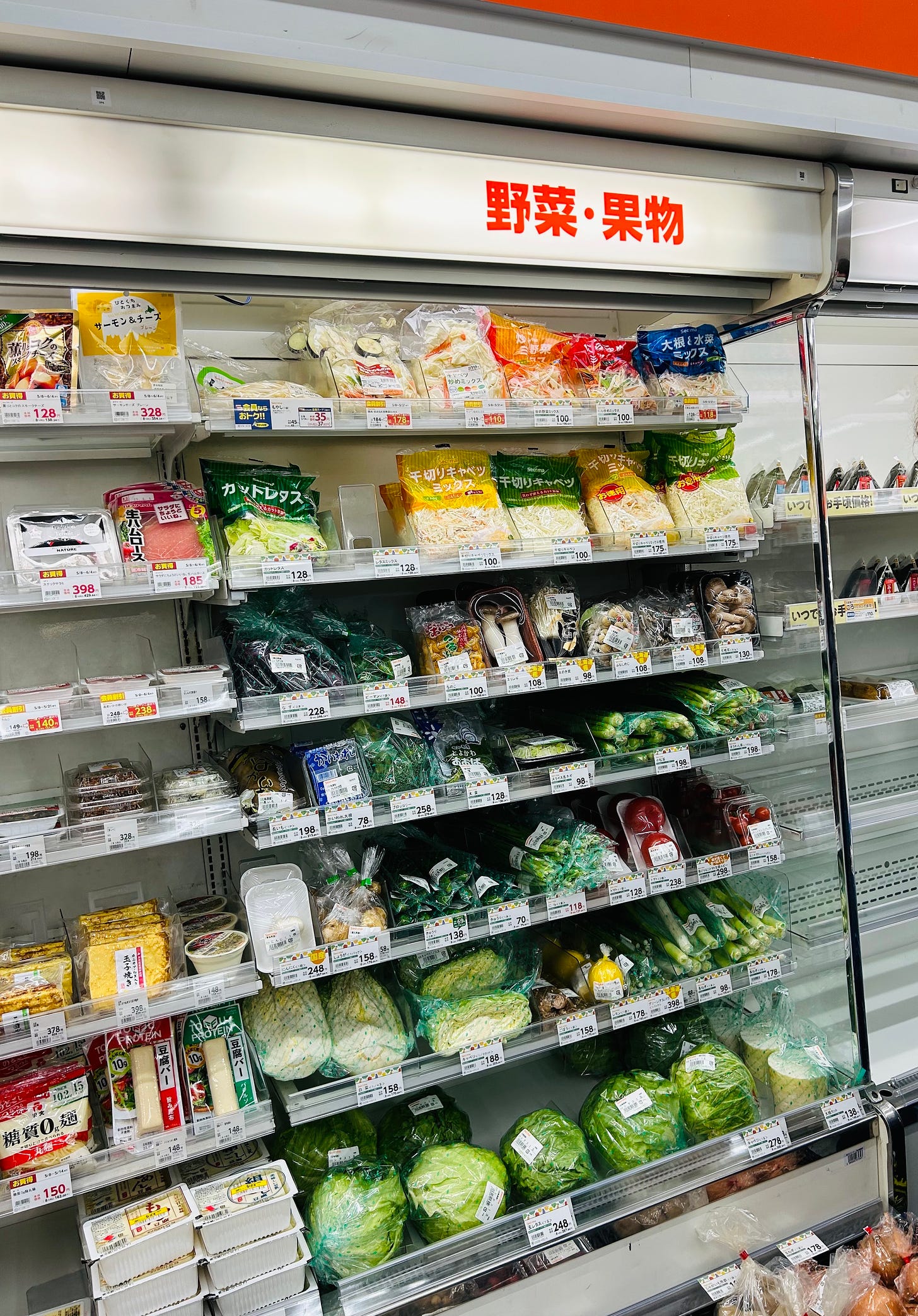
It’s easy to underestimate the cultural significance of the convenience store in Japanese daily life. Convenience stores, I learned the morning after we arrived, are open far earlier than bakeries, so they are often the first places workers go to get their daily coffee (including carbonated coffee!), pastry, or onigiri for lunch. You can go with others, but the stores are also designed to offer a solitary experience for the busy worker or someone who just wants to be alone. They give vegans some peace of mind with their umeboshi and tsukudani onigiri. They also happen to have some of the only public trash cans around (since there are no trash cans on the street! Anywhere. Seriously!)
My first introduction to the world of the Japanese convenience store was Convenience Store Woman by Sayaka Murata, upon my coworker and fellow bookseller’s recommendation. It tells the story of a single woman in her thirties who has spent nearly all of her adult life working in a convenience store. Everyone around her is disturbed by the fact that she doesn’t aspire to do much more than be a cashier and that she doesn’t seem to have any interest in life outside of her job. She, on the other hand, is perfectly happy to live without professional or romantic prospects even though it’s alienated her from a society that pressures her to conform to a “normal” life. She finds joy in arranging all of the milks in order of expiration date and changing out the signs for weekly specials. And when she goes home, she lies in bed thinking about how the store can optimize their displays and better serve their customers. It’s only when a fellow social outcast joins the staff as a trainee that her snowglobe life within the store gets shaken up. You may think you know where this is going, but things did not unfold the way I expected them to.
Her character is a living embodiment of the excesses of capitalism, but she’s also done what many advise but rarely follow themselves: be satisfied with a life she already has. It is concerning to the reader that she seems to only find meaning in the mundane tasks of running a store. (I can only imagine what it must be like to hear the Seico Mart jingle hundreds of times a day for years on end.) But are the desires of the people who judge her — like high-paying jobs and social approval — any less strange or artificial than hers? What is truly the evidence of a meaningful life? Is it something that is even legible to others or something that only you yourself can know?
When I walk down the aisles of the convenience store alone, I’m presented with a rare, exhilarating kind of loneliness — the loneliness which precedes adventure. Often in my life one state of being is accompanied by another simultaneously — adventure and solitude,joy and anxiety, nostalgia and forgetting. How remarkable to feel so much already on this trip and know that it’ll only grow the further we travel.
Cheers,
Shannon


